That sinking feeling!
After weeks of waiting and navigating NDIS bureaucracy, you have finally received your internal review decision from the National Disability Insurance Agency (NDIA). You heart sinks as you read the letter or email: the internal review decision is negative. As you read through the typically ‘template’ and glib reasons the NDIA has provided to back up its decision (such as, ‘X requested support is not value for money’) that sinking feeling may arise to anger as you scream ‘they just don’t get it, this so wrong!’.
While may feel like you are at the end of your tether, at law that is not the end of it.
You are entitled to ‘appeal’ the decision to the Administrative Review Tribunal (ART). This article provides an overview of the ART appeals or ‘external review’ process.
First, a little bit about the ART
The ART is an independent body (which replaced the former Administrative Appeals Tribunal) established under the Administrative Review Tribunal Act 2024 (Cth) (ART Act) and commenced operations on 14 October 2024.
It conducts merits review of administrative decisions made under Commonwealth laws, including NDIS, social security, taxation and migration laws.
It currently has a dedicated NDIS Division that, as its name suggestions, exclusively deals with NDIS-related applications for external review: section 17A, ART Act.
Section 9, ART Act sets out the high-level objectives of the ART, which is to provide an independent mechanism of review that:
- is accessible, fair, just, economical, informal and quick;
- is proportionate to the importance and complexity of the matter;
- improves the quality and transparency of government decision-making; and
- promotes public trust and confidence in the Tribunal.
Am I entitled to apply for external review by the ART?
Now let’s try and fix that sinking feeling!
If you have received a negative internal review decision from the NDIA, then you will be entitled to apply to the AAT for external review of the decision: section 103, National Disability Insurance Scheme Act 2013 (Cth) (NDIS Act) and section 196(1), ART Act.
28-day time frame for application
You must lodge your application for review by the ART within 28 days of receiving the negative internal review decision: section 29(2), ART Act. The ART may allow late lodgments if it is satisfied that it would be reasonable in all the circumstances to allow a late lodgment: section 18(3), ART Act and rule 5(3), Administrative Review Tribunal Rules 2024.
How do I lodge an application?
You can apply online at the ART’s website. You can also contact the ART for help you complete your application if you need assistance.
The ART does not charge an application fee for NDIS-related applications.
Do I need a lawyer?
You are not required to have a lawyer for the ART process. You can represent yourself.
That said, the below are some advantages of engaging a lawyer to represent you in the ART process:
- It will make the process easier and less stressful for you. For example, the lawyer will prepare and review submissions and other documents, and analyse and advise on evidentiary, legal and strategic issues. They will also speak for you at any case conferences, conciliation and/or hearing.
- While the ART process is relatively informal, there are some protocols, rules and procedures. A lawyer will help you navigate and comply with these.
- Having a lawyer will help to rectify the ‘power imbalance’ created by the NDIA hiring external lawyers to represent it at all stages of the process. Those lawyers usually brief barristers (counsel) to represent the NDIA at ART Hearings.
What happens next? The ART review process
The typical steps in the process are:
- On receipt of your application, the ART registry will write to you (usually by email) confirming that it has received your application. It will also provide you with information about the process.
- The ART registry will advise the NDIA of your application and ask the NDIA to send it and you all relevant documents it holds about the reviewable decision (the ‘T documents’) within 28 days.
- The ART will consider the best way to progress the application.
- In most cases, this is to bring the parties together via a dispute resolution process conducted under Part 4, Division 6, Subdivision C, ART Act. This process facilitates informal, confidential and frank discussions between the parties (ie, you and the NDIA) to try and resolve the disputed issues. It comprises a series of telephone Case Conferences led by an ART Registrar over a period of weeks or months. Typically, the NDIA’s lawyers identify ‘gaps’ in the evidence and will ask you to fill those gaps by gathering more evidence (eg, obtain reports from providers, or agree to an Independent Medical Examination).
- Depending on its caseload, the ART registry will schedule the first telephone Case Conference within 6-12 weeks of receipt of your application. The registry will advise you of the date by email.
- At any point of the proceedings, you may provide further evidence and/or further detailed submission. However, I recommend you do this before the Case Conference, so as to come fully prepared for this first conference (being prepared will improve the prospects of the dispute being resolved at the Case Conference, and help to minimize delays).
- Prior to the Case Conference, the NDIA’s lawyers must provide you and the ART with a Statement of Issues articulating what it considers to be the main issues in dispute. They will do this via email.
- At the Case Conference, an ART Registrar will facilitate the discussions between the parties to try and help them resolve the disputed issues. At the end of the conference (lasting 30-90 minutes), the Registrar will make Case Management Directions for next steps, such as parties’ providing more information, evidence or a position statement.
- The parties must do the things that the Directions require them to do by the stated due date.
- Sometimes, as part of the dispute resolution process, the Registrar may conduct a Conciliation Conference, wherein the Registrar will get more involved in helping the parties to resolve the dispute. Conciliation Conferences can last up to 2 hours.
- If the matter is resolved during the dispute resolution process, the parties will sign an agreement (prepared by the NDIA’s lawyer) and provide it to the registry. An ART Member will then formalise the agreement in written orders, and send those orders to each party to conclude the ART process.
- If the matter does not resolve via the dispute resolution process, an ART Member will conduct a Hearing at which each party can make oral submissions, and call witnesses to give oral evidence. An ART Hearing is conducted with as little formality as possible, and the rules of evidence that apply in Court proceedings do not strictly apply. Each party is also usually given the opportunity to provide the Member with written submissions. The Hearing process is intensive and typically takes 3 to 4 months.
The ART’s decision
After the Hearing, the ART Member will carefully consider all the relevant evidence, legislation and operational policies and form to make the ‘correct and preferable’ decision. This is called ‘merits review’.
It may take 2 to 6 (or even more) months for the Member to finalise their decision after the Hearing. The ART Member must make the legally correct decision or, where there can be more than one correct decision, the preferable decision.
The ART Member has the power to:
- affirm a decision;
- vary a decision;
- set aside a decision and substitute a new decision; or
- remit a decision to the decision-maker for reconsideration in accordance with any orders or recommendations made by the Member: section 105, ART Act.
The Member must give their decision and reasons to the parties in writing: section 111(2), ART Act.
The decision record may also be published on the ART website (and other case databases), subject to confidentiality considerations.
What happens to my plan while I am waiting for the external review decision?
As the above steps indicate, the ART process may take months and in some cases, 1 to 2 years. While the process is in train, the original decision (as affirmed on internal review) remains in force and effect: section 100(7), NDIS Act.
How Special Voices can help with your external review
It can be daunting going through the ART process alone and unrepresented!
Special Voices has experience and expertise in legally representing the family members of participant applicants in NDIS appeals at the ART (in particular, the parents of children with autism and family carers of adult participants with complex supports needs in funding disputes). We have a track record in fighting hard for applicants to get a fair outcome. We can also provide advice and support to self-advocating family members during the process. Contact us to enquire about our services.





